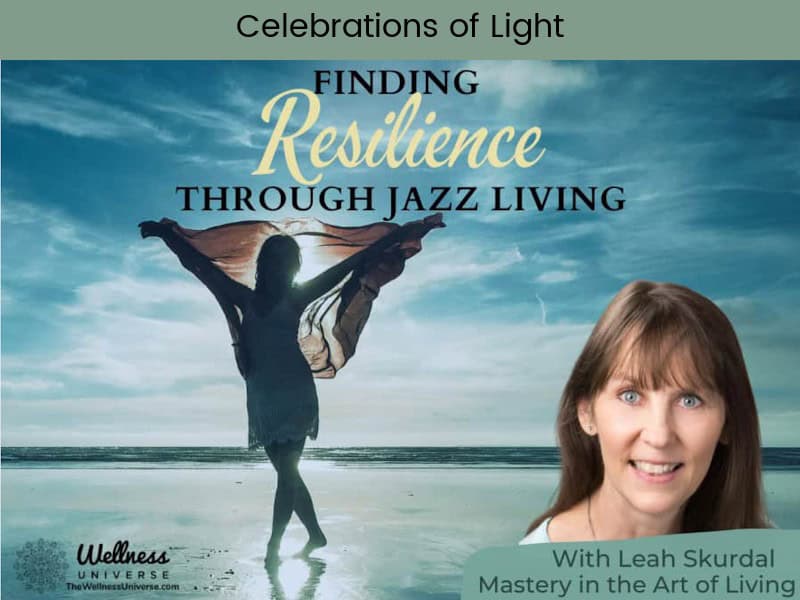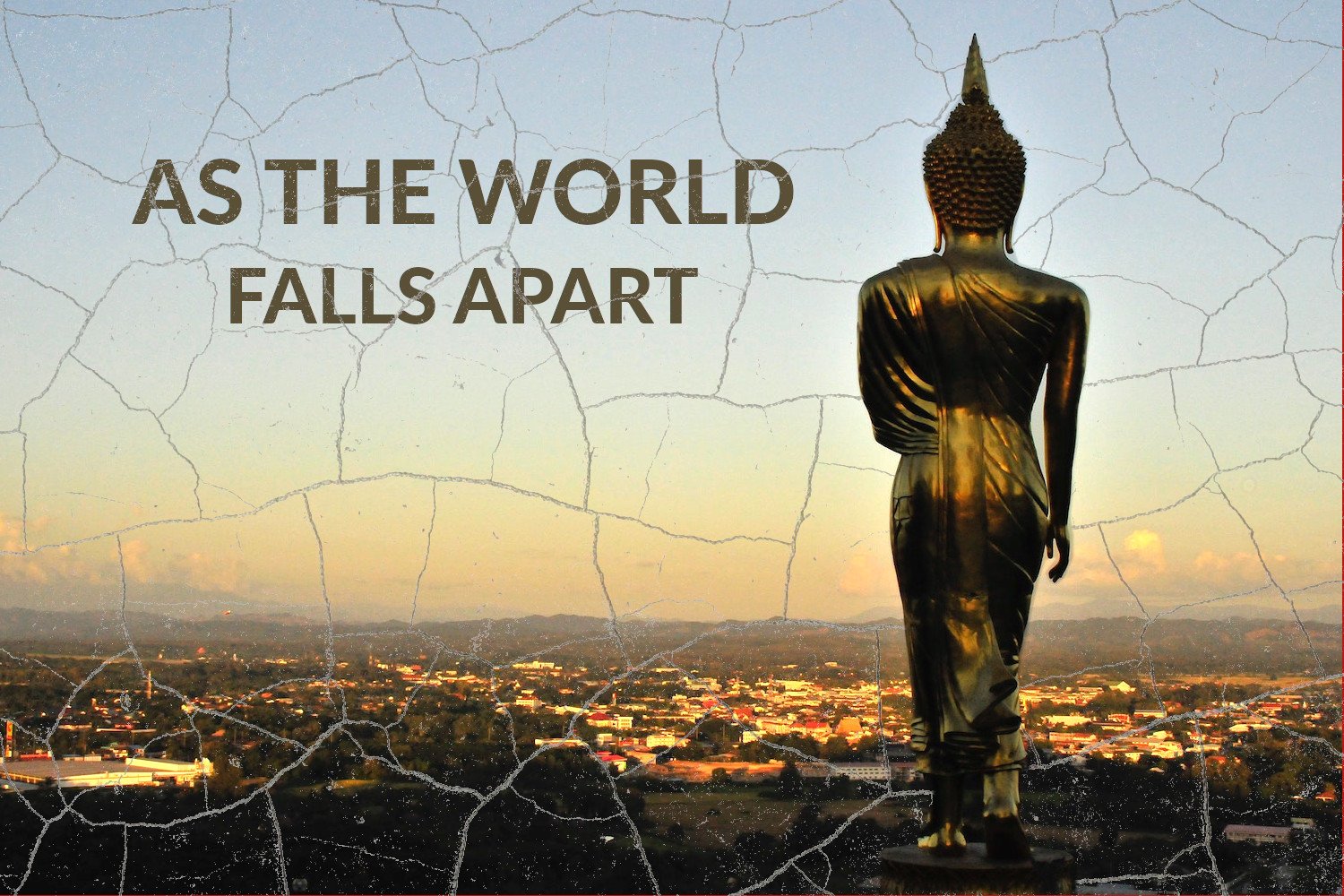Around the world, we humans enjoy lighting up the darkness and creating celebrations. We gather in the glow of flickering candles, lanterns, bonfires, and fireworks to celebrate life and light. Cultural holidays brighten long nights. Personal milestones honor the gift of life. They’re a kaleidoscope of joyful expression, gratitude for our shared humanity, and connection to the sacred. Celebrations also nurture spiritual wellbeing and resilience, reminding us of the light within and around us, even in challenging times.
I believe we enrich our lives by adding more celebration. Honoring multicultural traditions or creating our own unique celebrations acknowledges our shared humanity. When drawing inspiration from other cultures, it’s important to approach with respect and a desire to learn, ensuring our celebrations honor the roots and intentions of the traditions.
Cultural Appreciation, Not Cultural Appropriation
The key difference between cultural appropriation and cultural appreciation lies in intent, approach, and impact. When you respectfully explore another culture’s traditions, you create an opportunity for connection and understanding. Learning about the significance of the practices, asking questions, and celebrating with an open heart ensures you’re honoring the beauty of the culture rather than misusing it.
Create Your Own Celebrations and Traditions
When my oldest child turned two, she had FOUR birthday parties in November around the American Thanksgiving festivities. In December, the excitement of Christmas celebrations filled our house. But by January, the winter stretch ahead felt…empty. Nothing to look forward to until spring. I decided we needed more celebrations.
We started learning about celebrations from around the world. Each festival felt like opening a window into a new perspective, a different way of honoring life and light. We tried new foods, bought special decorations, and made fun crafts. Soon, our calendar was bursting with events. It was overwhelming, so we settled on a few favorite celebrations that have become cherished family traditions.
One we look forward to every February is celebrating Lunar New Year. We decorate the house with special decorations and prepare special foods. When the kids were small, we invited other families to our Lunar New Year celebrations to make a giant dragon cookie. We paraded through the house with dragon décor, shakers, symbols, and bells to scare away bad luck and make room for a prosperous new year. My kids were surprised to learn many of their school friends didn’t celebrate Lunar New Year—how could they miss out on all the fun?
Another favorite family tradition of ours is Día de los Muertos, the Day of the Dead. Every year, we set out an ofrenda with pictures, mementos, and favorite foods of our loved ones. My dad’s size 13 slippers, Auntie Ingeborg’s plastic bead necklace, and Grandma Hannah’s favorite Reese’s Peanut Butter Cup adorn our celebration table. I lovingly look at each of the funeral programs I’ve collected over the years with gratitude for the time we shared together. We enjoy seeing their pictures and lighting a candle to remember and celebrate the people who have been lights in our lives.
What struck me as we explored multicultural traditions were the universal threads. Around the globe, people celebrate with light, sound, and shared moments.
Here are a few of these radiant celebrations of light from around the world.
Celebrating Light: Illuminating the Darkness
When days grow short and nights stretch long, humans instinctively turn to light for comfort. These celebrations remind us of hope, resilience, and the power of connection. Around the world, celebrations of light invite us to gather, tell stories, reflect on the past, and dream of the future.
Christmas: A Celebration of Divine Light
Christmas is celebrated worldwide as a time of light and giving. For Christians, it marks the birth of Jesus, symbolized as the Light of the World. With twinkling trees, glowing nativity scenes, and candlelit services, light is at the heart of the festivities.
Even beyond its religious significance, Christmas embodies a universal message of warmth and generosity. Sharing meals, exchanging gifts, and gathering with loved ones remind us that light shines brightest when shared.
Día de los Muertos—Day of the Dead
Día de los Muertos, or Day of the Dead, is a vibrant Mexican celebration honoring loved ones who have passed. Families create altars adorned with candles, marigolds, photos, and favorite foods of the deceased, inviting their spirits to join in the festivities.
This joyful celebration is filled with music, dancing, and storytelling. People share picnic lunches and light candles at gravesites, emphasizing the joy and connection of remembering those we love. It’s a beautiful reminder that the light of their memory continues to shine in our lives.
Diwali: The Festival of Lights
Diwali, celebrated by Hindus, Jains, Sikhs, and Buddhists, is a glowing tribute to the victory of light over darkness. Homes gleam with oil lamps (diyas), fireworks dance across the night sky, and families come together to feast and share sweets.
This celebration isn’t just external—it’s deeply personal. Diwali invites us to clear away the clutter, both literal and emotional, and let our inner light shine.
Hanukkah: Lighting the Way of Resilience
Hanukkah, the Jewish Festival of Lights, commemorates the miracle of eight nights of light from a single jar of oil in ancient times. Each evening, families light another candle on the menorah, letting its warmth and glow build night by night.
This festival is a reminder of perseverance—that even in scarcity, the human spirit shines brightly. Hanukkah teaches us to nurture the flames of faith, hope, and community.
Islamic Traditions of Light
In Islam, light is a profound metaphor for divine guidance. The Quran describes Allah as the “Light of the heavens and the earth” (Surah An-Nur 24:35), an image that inspires reflection on inner illumination.
During Ramadan, mosques glow with decorative lights as communities gather for nightly prayers (Taraweeh). These illuminated spaces symbolize spiritual awakening and the power of faith. Though not tied to a specific festival of light, Islamic traditions embrace light as a metaphor for unity, hope, and the transformative power of divine presence in daily life.
Kwanzaa: Illuminating Cultural Roots
Kwanzaa, a celebration of African heritage and culture, uses seven candles to represent principles like unity, self-determination, and creativity. Each night, a new candle is lit, sparking conversations and reflections on values that sustain and inspire.
More than just light, the candles are like a torch passed between generations—an affirmation of identity, community, and the future.
Lunar New Year: A Festival of Renewal and Light
In many Asian cultures, Lunar New Year is a time to sweep away the old and welcome the new. Lanterns glow brightly, symbolizing guidance and prosperity for the year ahead, while fireworks chase away bad luck.
This vibrant celebration is both grounding and uplifting—a reminder to embrace renewal with joy and hope.
Winter Solstice: Embracing the Return of the Sun
The Winter Solstice marks the longest night of the year and the slow return of the sun. Cultures worldwide honor this turning point with fire, candles, and rituals.
In Scandinavia, St. Lucia’s Day features young girls wearing crowns of candles, symbolizing hope in the dark winter. These rituals remind us of patience and that light always returns—it’s nature’s promise, echoed in our own lives.
Shared Threads: Unity in Diversity
Across these diverse celebrations, common themes emerge:
Light as a Symbol of Hope: Whether a candle, a lantern, or a bonfire, light draws us together and reminds us of the resilience of the human spirit and connection to the sacred.
Cycles of Renewal: Many festivals align with natural rhythms, celebrating the turning of seasons or the start of a new year.
Gratitude and Reflection: From birthdays to cultural holidays, these moments encourage us to pause, appreciate, and honor life’s blessings.
Connection to Community: Whether it’s gathering for feasts, lighting candles together, or sharing traditions, these celebrations remind us we’re never alone and we are part of something larger than ourselves.
Find Your Light
Exploring these traditions taught me the beauty of weaving new celebrations into life. They don’t have to be elaborate—what matters is that they bring you joy and connection to deepen your spiritual wellbeing. So, light a candle, share a meal, or simply take a moment to reflect. Celebrations, big or small, are a reminder that life is bright and beautiful, humans are resilient, and we are connected to inner spiritual resilience.
I invite you to get creative and improvise new celebrations in your life. Find more joy! Look for more opportunities for celebrations.
What new traditions will you create this year?
Connect with Leah on The Wellness Universe and follow her on LinkedIn and Facebook
Mid-Week Reset Meditation
Pause with us to realign with your higher consciousness. The collective consciousness of our group will amplify your experience and facilitate reconnecting to your natural inner wellbeing to navigate life’s challenges with grace, flow, and ease.
Catch the replay – https://bit.ly/WUMidWeekMeditation
Welcome to Wellnesspalooza!
Join us for The Wellness Universe 10-Year Anniversary!
Over 40 sessions for mind, body, spirit, and financial well-being.
Early Bird 90% off going on now! https://bit.ly/Wellnesspalooza2025
The Wellness Universe Guide to Complete Self-Care, 25 Tools for Life will be available January 2025!
Get notified and receive a free book HERE.
Follow Karina on Instagram
The Wellness Universe is honored to support our charity of choice, the Karina LeBlanc Foundation. Empowering young women to bring to light their inner greatness.
Leah Skurdal guides people to up-level their stress resilience to improve relationships. Leah shares intuitive insights in private Energy Healing to address the roots of disharmony. As an inspirational speaker and published author, Leah offers lively classes, experiential workshops, and keynotes.
Post Views: 10
Publisher: Source link








